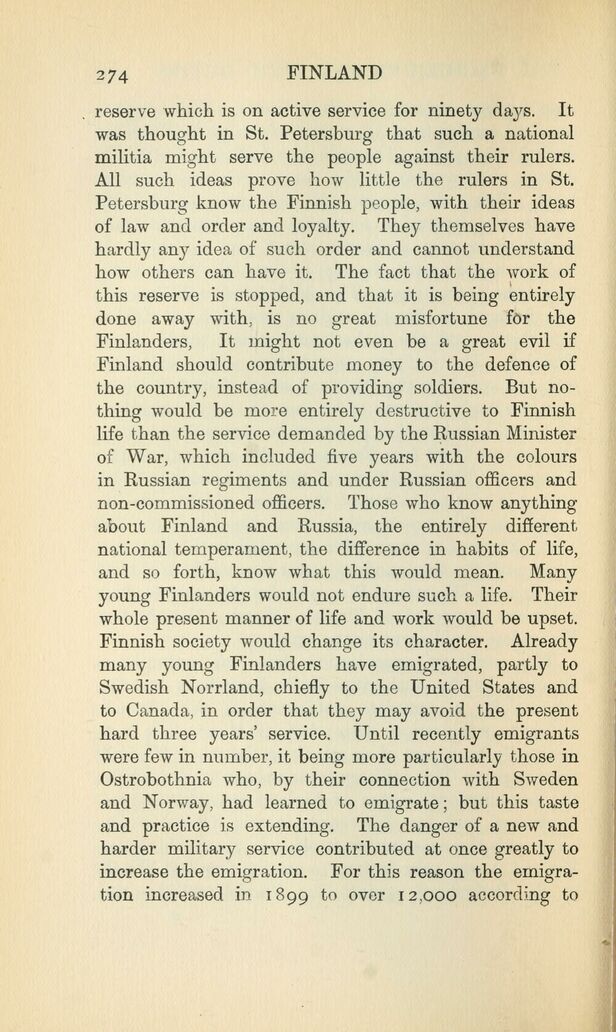
Full resolution (JPEG) - On this page / på denna sida - X. The Exchequer and Civic Duties

<< prev. page << föreg. sida << >> nästa sida >> next page >>
Below is the raw OCR text
from the above scanned image.
Do you see an error? Proofread the page now!
Här nedan syns maskintolkade texten från faksimilbilden ovan.
Ser du något fel? Korrekturläs sidan nu!
This page has been proofread at least once.
(diff)
(history)
Denna sida har korrekturlästs minst en gång.
(skillnad)
(historik)
reserve which is on active service for ninety days. It
was thought in St. Petersburg that such a national
militia might serve the people against their rulers.
All such ideas prove how little the rulers in St.
Petersburg know the Finnish people, with their ideas
of law and order and loyalty. They themselves have
hardly any idea of such order and cannot understand
how others can have it. The fact that the work of
this reserve is stopped, and that it is being entirely
done away with, is no great misfortune for the
Finlanders. It might not even be a great evil if
Finland should contribute money to the defence of
the country, instead of providing soldiers. But
nothing would be more entirely destructive to Finnish
life than the service demanded by the Russian Minister
of War, which included five years with the colours
in Russian regiments and under Russian officers and
non-commissioned officers. Those who know anything
about Finland and Russia, the entirely different
national temperament, the difference in habits of life,
and so forth, know what this would mean. Many
young Finlanders would not endure such a life. Their
whole present manner of life and work would be upset.
Finnish society would change its character. Already
many young Finlanders have emigrated, partly to
Swedish Norrland, chiefly to the United States and
to Canada, in order that they may avoid the present
hard three years’ service. Until recently emigrants
were few in number, it being more particularly those in
Ostrobothnia who, by their connection with Sweden
and Norway, had learned to emigrate; but this taste
and practice is extending. The danger of a new and
harder military service contributed at once greatly to
increase the emigration. For this reason the emigration
increased in 1899 to over 12,000 according to
<< prev. page << föreg. sida << >> nästa sida >> next page >>